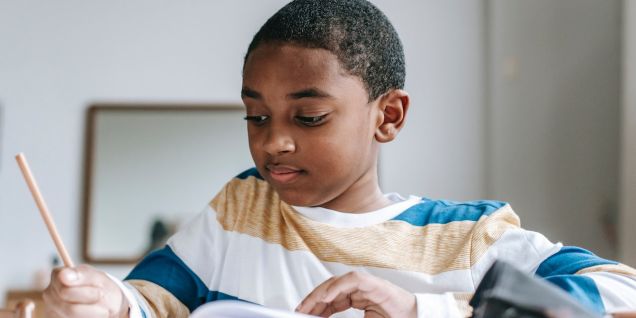Tips To Build Self-Confidence As A Student


Students with unique academic disabilities, challenges with their motor skills, or physical limitations frequently report feeling unconfident in the classroom, which is sadly prevalent. This is especially true when learning differences are not acknowledged. Children and young adults are in a very severe situation as a result.
It affects how they conduct their life and may have a big impact on their present and future academic success. Fortunately, parents and teachers may help by encouraging independence, promoting a good sense of self, and assisting difficult pupils in getting the necessary support and adjustments in the classroom.
Following are some quick and easy tips to build up self-confidence as a student:
One of the worst things a student may do is compare themselves to other students. Every student has different strengths and develops at a different rate. A student may start to doubt their abilities if they compare their work to that of a peer who obtained a higher mark.
If you hear your child talking about how well their peers are doing, tell them to stop comparing their work to others. Even if they are doing it, your child might not even be aware of it! When your child breaks the negative habit of self-comparison, they will be able to concentrate on what is most crucial—learning.
When they hear negative feedback or obtain a poor test grade, many students experience a downward spiral. This gives them the impression that they aren't as smart as the other students in the class and won't succeed in school. Students with a pessimistic outlook frequently experience this. Encourage your child to keep a positive outlook by not concentrating on the shortcomings.
This entails utilizing failures as teaching experiences. It implies that even if a student is having a difficult time, they are aware that things will turn around. By setting a good example, you may teach your youngster to maintain a happy outlook.
Say you're happy if something goes wrong while preparing dinner. If the company is no longer present, you won't commit the same error. If you're struggling at work, say that you know things will get easier eventually; all you have to do is get through it.
If a child lacks self-assurance, you might need to take a step back and consider why. Whatever the cause, you have a responsibility to offer assistance. Your pupils are far more likely to participate, enjoy class, and even take risks with their work when necessary if you are self-assured.
It will increase imagination and creativity, increasing the likelihood that they will put more effort and passion into their job, achieving better grades on examinations and homework. It's not just about the work, though. Additionally, their health and general well-being are involved.
Assign students the task of drawing (or pasting) a picture of themselves in the center of a piece of paper or poster board. Students identify themselves by writing several roles around the image, such as son/daughter, sibling, student, soccer player, buddy, etc.
Students write good qualities to define themselves in a larger circle around the image and the roles. Students can reflect on their identities and self-image through this exercise. They might also make use of the opportunity to acknowledge their strengths.
Students then discuss with a companion or group how each quality best describes them. Another choice is to have their Group members or partners might contribute good traits they notice in the student.
Nothing undermines self-assurance more than giving way to dread. We all experience fear at different times; it's part of being human. However, facing challenges with courage and poise strengthens character and boosts confidence. Make an effort to be seen!
Do not sit at home and worry if you are apprehensive about social gatherings, meeting new people, etc. Doing boosts self-assurance. Naturally, the first few times you're in a new position, you'll feel weird and probably act awkwardly as well, but the more you do it, the more comfortable and confident you'll feel.
Everybody experiences low points, times of uncertainty, bewilderment, and doubt. We must learn how to regain confidence when that occurs. The first step is to realize that everyone encounters these circumstances. Another is to keep going, keep seeing the intended result, and remember earlier achievements! Practice makes perfect. Gaining success in any undertaking requires having self-confidence. It is acquired through doing, learning, achieving, and persevering.
Popular
6 Affordable Makeup Organizers To Declutter Your Vanity
For the makeup lovers! Here are the best 6 Affordable Makeup Organizers To Declutter Your Vanity.
Look at the Stunning Debut of Alia Bhatt at the Met Gala 2023
Alia Bhatt Met Gala 2023 debut was a huge success, and she certainly made a mark with her stunning look. Now grab for more details here!
Crunches Vs. Sit-Ups: Which One Is Best For Your Abs?
Exercises that burn fat can help you lose weight .If you want to know Crunches Vs. Sit-ups: Which one is best for your Abs read below
Black Seed Oil Benefits For Hair and Skin
Black seed oil offers a wide range of benefits for hair and skin. Now get more information about black seed oil visit the blog!
